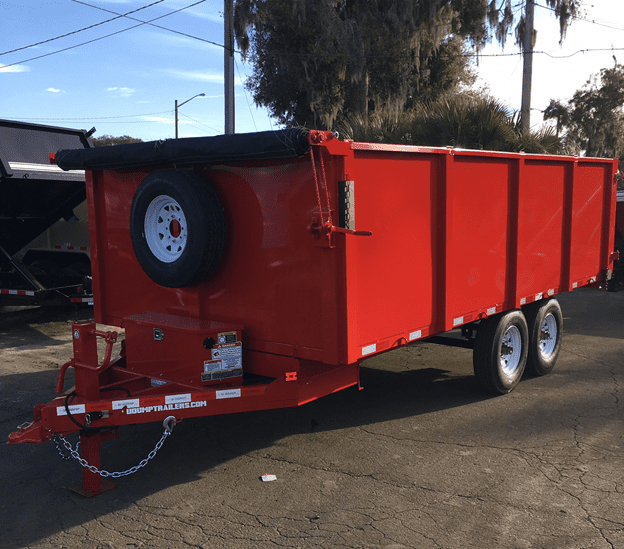3 Tips for Breaking in Your New Dump Trailer
Monday, February 8, 2021

Buying a new dump trailer can be a very satisfying experience. When you first hitch that shiny new trailer to your tow vehicle, you're probably going to be ready to try it out. That's great - they're built to work, so put it to work. If you really want to get the most out of your new trailer, though, and want it to keep working for years to come, there are a few basic maintenance guidelines you should follow.
Here are 3 tips for breaking in your new trailer so that it works safely and reliably for you over its lifetime:
Tip 1: Retighten Lugs at First 10, 25 and 50 Miles
Wheel lugs can shift and settle after first being assembled, and should be checked after the first 10, 25 and 50 miles of driving. This is the case for both new trailers and for trailers that have recently had a wheel remounted. Loose lugs can result in a wheel coming loose from the trailer, causing to a crash that could lead to death or serious injury for you or anyone who happens to be on the road near you.
In addition to the very serous danger loose lugs pose, improper tightening of the lug nuts or bolts will in many cases void the axle warranty. This is a simple and very important rule to follow when breaking in your new trailer.
Tip 2: Adjust Brakes at First 200 Miles
Brake shoes and drums experience a rapid initial wear. Brakes must be adjusted after the first 200 miles of use, and each 3,000 miles thereafter. Some axles are fitted with a mechanism that will automatically adjust the brake shoes. If your trailer is not fitted with automatically adjusting brakes, the brakes will need to be manually adjusted.
Read you axle and brake manual to see if your brakes adjust automatically. If you do not have the axle and brake manual, contact your dealer for assistance.
Tip 3: Synchronize Your Brake Systems
Trailer brakes are designed to work in synchronization with the brakes on the tow vehicle. When the tow vehicle and trailer braking systems are synchronized, both braking systems contribute to slowing, and the tongue of the trailer will neither dive nor rise sharply.
To insure safe brake performance and synchronization, read and follow the axle/brake and the brake controller manufacturers' instructions. Failure to keep your brakes operating correctly can not only damage your trailer and/or tow vehicle, it could also cause an accident that could result in death or serious injury.
It is also a good idea to road test your brakes in a safe area at no more than 30mph before each tow.
These 3 tips should help you get off to a great start with your new trailer, and the beginning of a long, hard-working relationship.